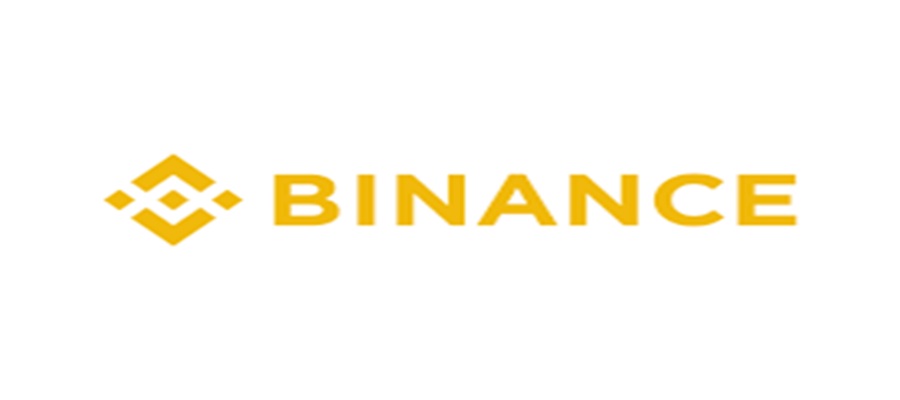E-Financial
ePayment Stakeholders’ Seek Review of Policy on PoS to Boost Growth

Worried by slow pace of growth in the use of Point of Sale terminal (PoS) as a means of payment in the country, stakeholders have called on Central Bank of Nigeria (CBN)to review its policy direction in that ecosystem.
This is coming as Nigeria CommunicationsWeek investigations revealed fluctuations in the figure of registered and deployed terminals between August and October this year.
According to a report released by NIBSS the industry Payments Terminal Service Aggregator (PTSA), the number of deployed terminals increased in August to 141, 531 and dropped to 140, 448 in September and increased again in October to 145, 350.
Also, same was noticed on the number of registered terminal with August recording 173, 815 and came down to 169, 318 in September while October witnessed increase to 176, 185.
Sarafadeen Fasasi, president, Association of Mobile Money Agents in Nigeria, attributed this slow growth to a number of factors which includes lack of support to drive the business.
“Support I mean is providing financial backing for transactions on the PoS just the way ATMs are loaded with cash for withdrawals. Today, there are no facility for PoS agency business by the banks which is the major determinant of success or failure of PoS innovation,” he said.
He decried lack of structure on ground to resolve issues arising from PoS transactions.
“If customer’s account is debited without ATM paying, the individual will go to the bank and fill form for reversal, but in PoS transactions there is no such thing which has pushed customers to resolve to holding on to PoS attendant to ensure that the issue is sorted out. As at today, all issues arising from ATM, switching, PoS, online among others, are under NIBSS which does not have the capacity to coup with these issues,” he said.
He however, urged CBN to review her policy on PoS for it to witness the desired growth, such review he said could come in creating a unit to address issues arising from PoS transactions.
“If the policy is reviewed it will build trust and confidence in the use of the platform for payment. More so, PoS fixed charge is high at .075, this means that customer is charged N750 on N100,000 transaction compared to N65 charged on withdrawal outside of customer’s bank ATM,” he added.
Onajite Regha, executive secretary/CEO, E-Payment Providers Association of Nigeria (E-PPAN)said: “So far, E-PPAN in its advocacy nature has taken steps ahead to break the barrier of this poor adoption. We are looking into capturing the lower part of the pyramid with the mobile payments awareness which will see more people included financially and thereby increase the adoption of the Cashless policy.”
“We are also open to discussions on advocacy and sensitization from financial bodies who have products and services to render in the pursuit of the success of this policy. From time to time we carry out sensitization, financial literacy and education programme and we partner with stakeholders to expose the benefits of electronic payments to consumers across the strata”.
E-Financial
NAICOM Signs MoU with BPP to Deepen Insurance Compliance in Public Procurement

The National Insurance Commission (NAICOM), has signed a Memorandum of Understanding (MoU) with the Bureau of Public Procurement (BPP) for collaboration and strengthening of the insurance industry, in the area of public procurement processes.

The Commissioner for Insurance, Olusegun Ayo Omosehin, welcoming the Director-General of BPP, Adebowale Adedokun, and his delegation to NAICOM for a working visit, during which the agreement was signed, highlighted the role of NAICOM as the statutory regulator charged with supervising, regulating and promoting the growth of Nigeria’s insurance industry.
He further stated that NAICOM’s current reform priorities include policyholder protection, regulatory capacity building, legal modernisation, recapitalisation, and increasing insurance penetration.
He emphasised that the collaboration would reinforce the principles of public procurement and insurance practice in Nigeria. He noted that achieving President Bola Ahmed Tinubu’s vision of transforming Nigeria’s economy into a one-trillion-dollar economy required strong inter-agency cooperation.
He stressed that the commission’s reform objectives could not be fully realised without strategic collaboration with agencies such as BPP. The Commissioner further disclosed plans to establish a platform to monitor and verify insurance coverage for public procurement items and assured that insurance operators would strictly adhere to established rules and standards.
In his remarks, the Director-General of BPP, Adedokun, commended the ongoing transformation in the insurance industry, describing the Commission’s environment as serene and reflective of its readiness to support the Federal Government’s economic growth agenda.
Adedokun, welcomed the partnership and highlighted implementation as the critical next phase: “Signing MoU is only the beginning — what matters is delivery. BPP has moved to a fully digital submission model to speed approvals and reduce opportunities for corruption”, he stated.
E-Financial
Binance Cuts Illicit Activity Exposure by 96%, Leads Global Crypto Compliance Push

Binance, the world’s largest cryptocurrency exchange, has reported a 96 per cent drop in direct exposure to illicit activities between January 2023 and June 2025, underscoring its commitment to regulatory excellence and user safety amid Nigeria’s growing digital finance sector.

Binance
The exchange highlighted investments in a robust compliance framework, including over 580 global compliance professionals and 970 staff in related roles, advanced transaction monitoring, stringent Know Your Customer (KYC) protocols, and anti-money laundering (AML) systems.
These measures align with evolving regulations across key markets, including Nigeria, where crypto adoption surges despite Central Bank of Nigeria (CBN) guidelines.
Binance’s Chief Compliance Officer, Noah Perlman, said: “At Binance we’ve built a system that doesn’t just react to threats, it anticipates them. A 96% reduction in illicit exposure is a testament to our infrastructure and the 1,500+ professionals working behind the scenes to protect our 300M users.”
Key achievements include a 96.8 per cent plunge in sanctions-related exposure—from 0.284 per cent in January 2024 to 0.009 per cent in July 2025.
In 2025 alone, Binance responded to over 71,000 law enforcement requests, helping seize more than $130 million (over ₦200 billion) in illicit funds.
Collaborations with agencies like Europol, DEA, UK’s NCA, and national cybercrime units have dismantled ransomware groups, darknet markets, and trafficking networks.
Binance co-CEO Richard Teng added: “Our mission has always been to increase the freedom of money, but that freedom is only sustainable if it is built on a foundation of trust. By integrating compliance into our product DNA, we are proving that the world’s largest exchange can also be the most secure.”
The platform engages regulators and policymakers to shape balanced rules supporting innovation while prioritising transparency and financial integrity. Since 2017, Binance has served over 300 million users, publishing regular compliance updates to build trust.
Industry watchers note Binance’s efforts resonate in Nigeria, where crypto trading volumes exceed $50 billion annually, but challenges like fraud and regulatory scrutiny persist. The exchange’s progress could bolster confidence as the CBN refines fintech policies.
Binance reaffirmed its dedication to a safer crypto ecosystem through ongoing investments and partnerships.
E-Financial
Nigeria’s VAT Jumps 34%, CIT Soars 48% to ₦14trn in 9M’25 – NBS

Nigeria’s non-oil tax collections posted robust growth in the first nine months of 2025, with Value Added Tax (VAT) rising 34 per cent to ₦6.4 trillion and Company Income Tax (CIT) jumping 48 per cent to ₦7.72 trillion, bolstering federal revenue amid oil price volatility.

NBS
Data from the National Bureau of Statistics (NBS) showed VAT climbing from ₦4.77 trillion in 9M’24, reflecting stronger domestic consumption and imports. Quarterly trends indicated a slight 1.4 per cent dip to ₦2.03 trillion in Q2’25 from ₦2.06 trillion in Q1’25, followed by a 10.66 per cent rebound to ₦2.28 trillion in Q3’25—a 28.1 per cent year-on-year gain.
In Q3’25, local VAT hit ₦1.12 trillion, foreign VAT ₦680.23 billion, and import VAT ₦479.79 billion. Sectorally, Administrative and Support Services led with 89.28 per cent quarter-on-quarter growth, trailed by Arts, Entertainment and Recreation (82.49 per cent) and Human Health (32.4 per cent). Real Estate contracted sharply by 51.33 per cent. Manufacturing dominated contributions at 25.89 per cent, followed by Information and Communication (18.77 per cent) and Mining/Quarrying (14.85 per cent).
CIT followed suit, surging from ₦5.22 trillion in 9M’24. It stood at ₦1.98 trillion in Q1’25, leaped 40 per cent to ₦2.78 trillion in Q2’25, and grew 5.7 per cent to ₦2.96 trillion in Q3’25—a 67.19 per cent year-on-year rise. Domestic CIT reached ₦1.21 trillion in Q3, while foreign CIT hit ₦1.75 trillion, underscoring multinational firms’ role.
Economists attribute the uptick to improved tax administration, digital tracking, and post-reform consumption, though sectoral disparities signal real estate headwinds. The gains support President Tinubu’s revenue diversification drive, reducing oil dependency as global crude fluctuates.
NBS data highlights non-oil taxes’ potential to fund infrastructure and social programmes, with analysts eyeing sustained momentum into 2026.

 Telecom3 days ago
Telecom3 days agoSunil Bharti Mittal Conferred GSMA Lifetime Achievement Award for Transforming Global Telecommunications

 Telecom3 days ago
Telecom3 days agoWhy Digital Trust Matters: Secure, Responsible AI for African SMEs?

 E-Business3 days ago
E-Business3 days agoJumia Tech Week 2026 Begins with Tech Deals on Smartphones, Electronics, and Everyday Technology

 General News3 days ago
General News3 days agoKrishnan Exits Africa Data Centre to Embark on Professional Chapter

 E-Financial2 days ago
E-Financial2 days agoNRS Targets N40trillion in Tax, Royalty Revenue in 2026

 News3 days ago
News3 days agoAfDB Supports Francophone Africa Start-ups with €6.5M

 Telecom3 days ago
Telecom3 days agoHouse Probes Fintech Regulation via Public Hearing on New Commission Bill

 E-Business3 days ago
E-Business3 days agoHouse Queries NDIC: ₦5m Max Payout for Failed Bank Depositors


















